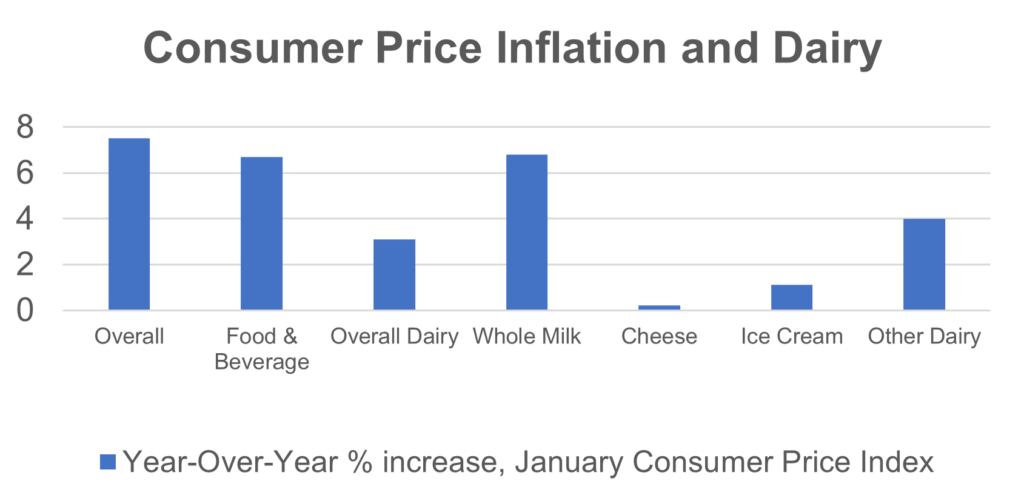It will come as no surprise to anyone reading this that inflation’s eating away at pocketbooks. The most recent Consumer Price Index is reporting the fastest retail price increases in costs in 40 years, with a hot economy and tight supply chains pushing up everything from cars to coffee.
And when consumers (and media outlets) focus their frustration, it tends to be on the prices that are most widely noticed. Gasoline’s the best example – what other product routinely posts its price on big signs next to highways? A gallon of milk is another one – when you’re in 94 percent of households, you can safely assume that a big part of the consuming public knows exactly what milk costs – and notices when it rises.
But before you pass unfair judgment on a jug of liquid goodness, a chart:
This is the most recent year-over-year Consumer Price Index covering overall inflation, food and beverage inflation, and dairy categories. A gallon of whole milk (the most popular variety in a jug) is going up, but it’s in line with other foods and beverages and lower than overall inflation. Subcategories fare even better. Cheese costs to consumers have barely budged. Ice cream remains an affordable (and relative to other categories, becoming even more so) treat. And yogurt, butter, et. al remain a compelling choice of affordable, high-quality nutrition for households.
So what’s going on with the inflation gap? A few things. Dairy supply chains tend to be more local and predominantly domestic, meaning some factors driving price gains in imported goods don’t apply. Dairy farmers have also done a great job of keeping markets adequately supplied, even in a year of record dairy export sales.
But whatever the reasons — if you’re frustrated with your grocery bill, dairy’s a place to find value. Dairy farmers are doing their part in keeping food prices under control. So much so, in fact, it might be worth slowing down a little bit the next time you’re pushing your cart past the dairy case. You might just want to take advantage of the opportunity dairy provides to nourish your family, without emptying your wallet. That’s not to be taken for granted these days.






